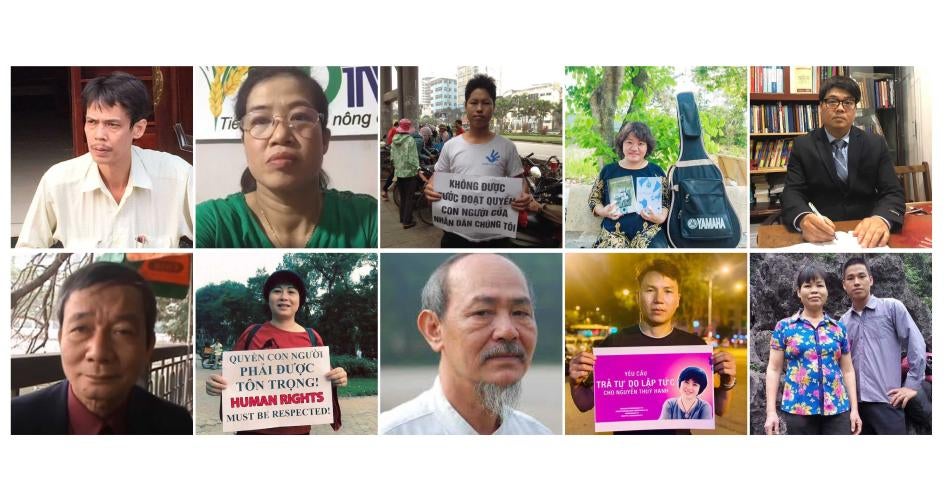(New York) – The Vietnamese government, in 2021, systematically punished activists who challenged the repressive status quo, Human Rights Watch said today in its World Report 2022. In a year dominated by the Covid-19 pandemic, the 13th Communist Party Congress in January, and national elections in May, the authorities imprisoned at least 63 people for expressing opinions or joining groups deemed hostile to the government, with many receiving very long prison sentences after unfair trials.
“The Vietnamese government hid behind the Covid-19 pandemic to carry out a severe crackdown on peaceful activism that largely went unnoticed outside of Vietnam,” said Phil Robertson, deputy Asia director at Human Rights Watch. “The government seems to want to wipe out the growing dissident movement with devastating prison sentences before the world starts paying attention again.”
In the 752-page World Report 2022, its 32nd edition, Human Rights Watch reviews human rights practices in nearly 100 countries. Executive Director Kenneth Roth challenges the conventional wisdom that autocracy is ascendent. In country after country, large numbers of people have recently taken to the streets, even at the risk of being arrested or shot, showing that the appeal of democracy remains strong. Meanwhile, autocrats are finding it more difficult to manipulate elections in their favor. Still, he says, democratic leaders must do a better job of meeting national and global challenges and of making sure that democracy delivers on its promised dividends.
The Vietnamese government severely restricts basic civil and political rights, including freedom of expression, speech, information, association, peaceful assembly, and freedom of religion and belief. The country has no free and independent media. The government does not allow the formation of political parties or independent human rights organizations, and intrusively manages all religious institutions.
People who publicly criticize the government or Communist Party leaders on social media routinely face harassment, intimidation, intrusive surveillance, restrictions on freedom of movement, physical assault, and arrest. After being detained for exercising their rights, people face abusive interrogation, long detention periods without access to legal counsel or their families, and trial by politically controlled courts meting out increasingly lengthy prison sentences.
In January, three members of the Independent Journalists Association of Vietnam – Pham Chi Dung, Nguyen Tuong Thuy, and Le Huu Minh Tuan – were convicted and sentenced to between 11 and 15 years in prison. A court sentenced a land rights activist, Can Thi Theu, and her son Trinh Ba Tu, contributors to the Liberal Publishing House, to eight years in prison each in May; and writer Pham Chi Thanh to five and a half years in prison in July. In October, a court in Can Tho convicted and sentenced five members of the Clean Newspaper – Truong Chau Huu Danh, Doan Kien Giang, Le The Thang, Nguyen Phuoc Trung Bao, and Nguyen Thanh Nha – to between two years and four and a half years in prison. In December, courts sentenced prominent blogger Pham Doan Trang to nine years, land rights activists Trinh Ba Phuong to 10 years and Nguyen Thi Tam to six years, democracy campaigner Do Nam Trung to 10 years, and independent political candidate Le Trong Hung to five years in prison. All were charged with propaganda against the state under article 117 (or article 88), or with abusing the rights to freedom and democracy to infringe upon the interests of the state under article 331, of the penal code.
“Vietnam’s international donors need to stop overlooking the government’s abysmal human rights record and press the country’s leadership to end the Vietnamese people’s further suffering,” Robertson said.








